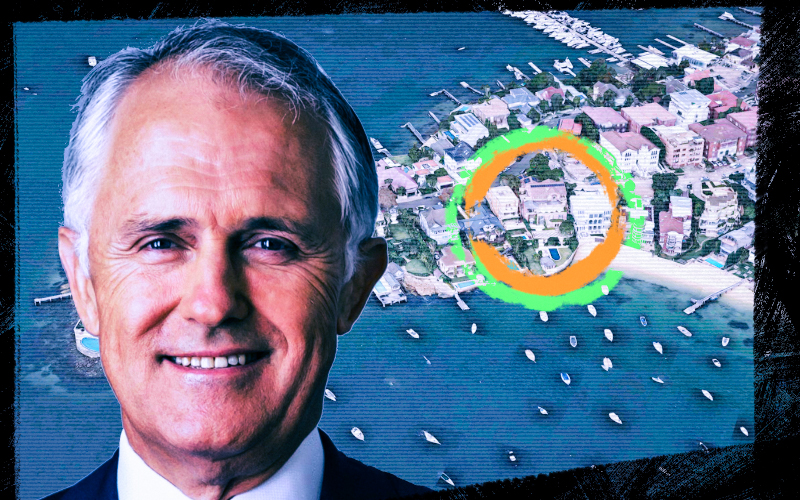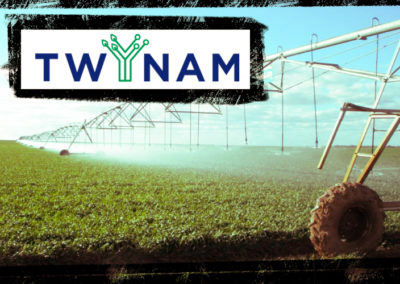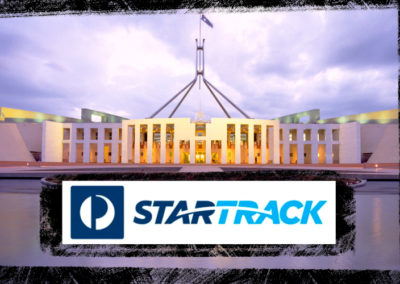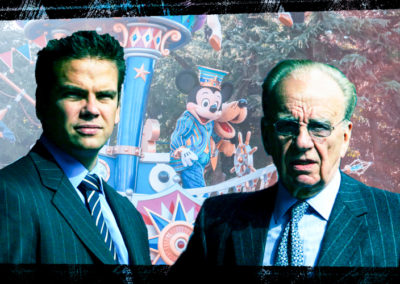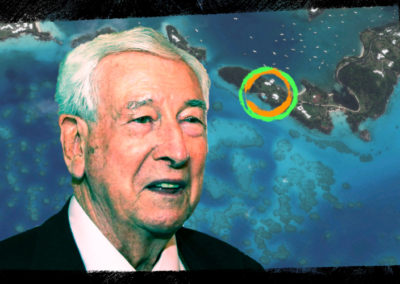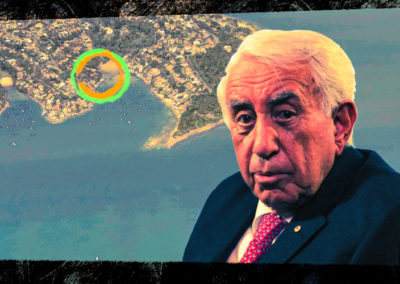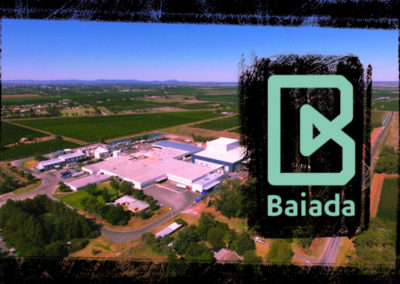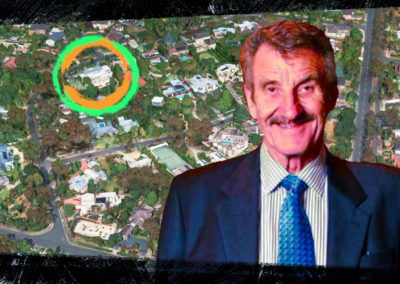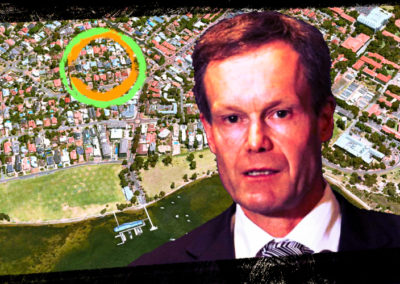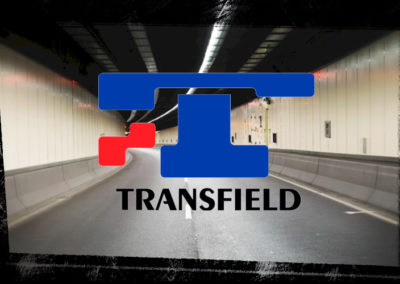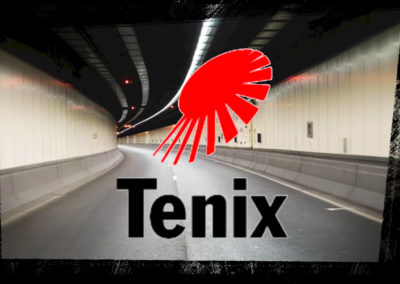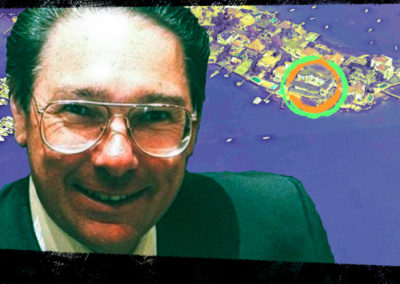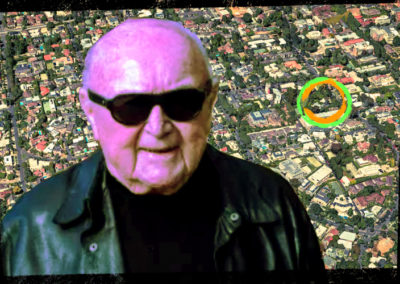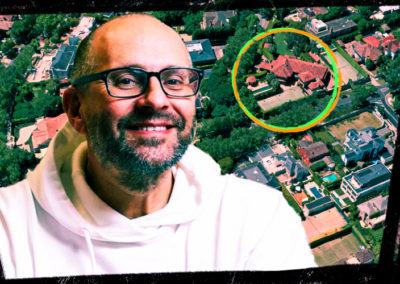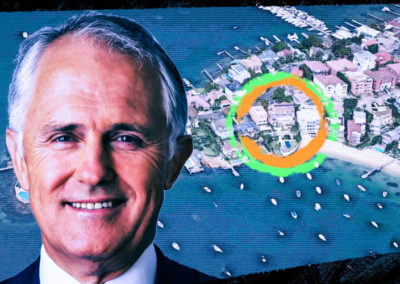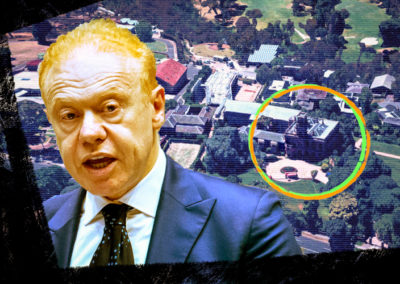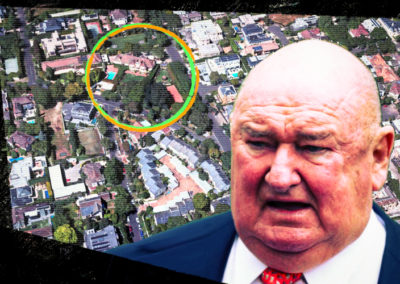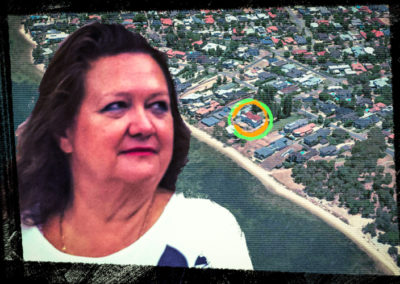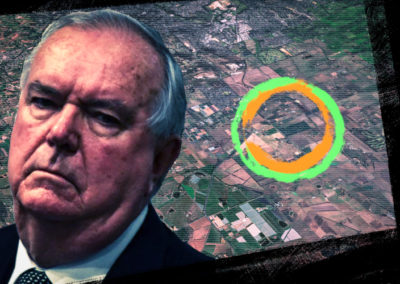Host to “old wealth” billionaires gifted an exemption from lodging their financial accounts, the Secret Rich List also includes a former Australian prime minister. Once an investment banker, Malcolm Turnbull is the only director of the 1,119 Dark Companies who has attempted to end the special treatment.
| Top 200 Rich List (2020) | No. of Dark Companies: 1 | Political Donations since FY 1998-99 |
|---|---|---|
| Rank: | Turnbull & Partners Holdings Pty Ltd | Labor Party: $0 |
| Wealth: $ | Coalition: $2,255,232 | |
| Wealth (2019): $ | Independent: $0 | |
| YoY wealth change: | Total: $2,255,232 |
Malcolm Turnbull actually tried to revoke the grandfathered status of Turnbull & Partners Holdings but was unsuccessful and his company remains on the Secret Rich List.
The Dark Company was originally an investment bank co-founded by Turnbull, former NSW premier Neville Wran and Nick Whitlam, the son of former prime minister Gough Whitlam.
In 2015, it was found to be investing in several Wall Street funds despite Turnbull’s office stating “the company had been inactive for more than a decade and could not be compared to other grandfathered companies”. When prime minister, Turnbull was under pressure for his investments in the tax haven of the Cayman Islands.
During a Senate hearing in March 2020, ASIC told the committee it did not have the power to remove a company from the list, even at the request of the Dark Company. The corporate regulator also said: “There is no provision for the company to lodge a financial report voluntarily.”
According to Turnbull, the exemption “makes absolutely no difference to tax collections”. In theory, this is correct. The Tax Office maintains the power to investigate and enforce tax collections for Dark Companies. In practice, tax avoidance thrives in the darkness of non-disclosure. Before the Senate Inquiry into corporate tax avoidance in 2015 – whose ensuing reforms led to billions in extra payments from multinational tax avoiders – the government claimed corporate tax avoidance was not a problem.
Few would now dispute that the visibility of the issues which arose from that inquiry and the consequent transparency reforms have been a resounding success.
The current directors of Turnbull’s Dark Company are Malcolm Turnbull and his wife Lucy. Past board members are a colourful selection, including Rodney Adler, Kerry Packer and Seven Network’s commercial director Bruce McWilliam – a fellow secret rich-lister and Turnbull’s neighbour.
While he tried to wash his hands of the secret rich list, personally, his government also introduced legislation in 2015 that reinforced the reporting exemption for the 1,119 Dark Companies. In that same year, the Coalition opposed an amendment put forward in the Senate that would have removed the loophole.
Staff writers who have worked on one or more of our special investigative projects include Zacharias Zsumer (War Powers), Stephanie Tran, Tasha May and Luke Stacey.
